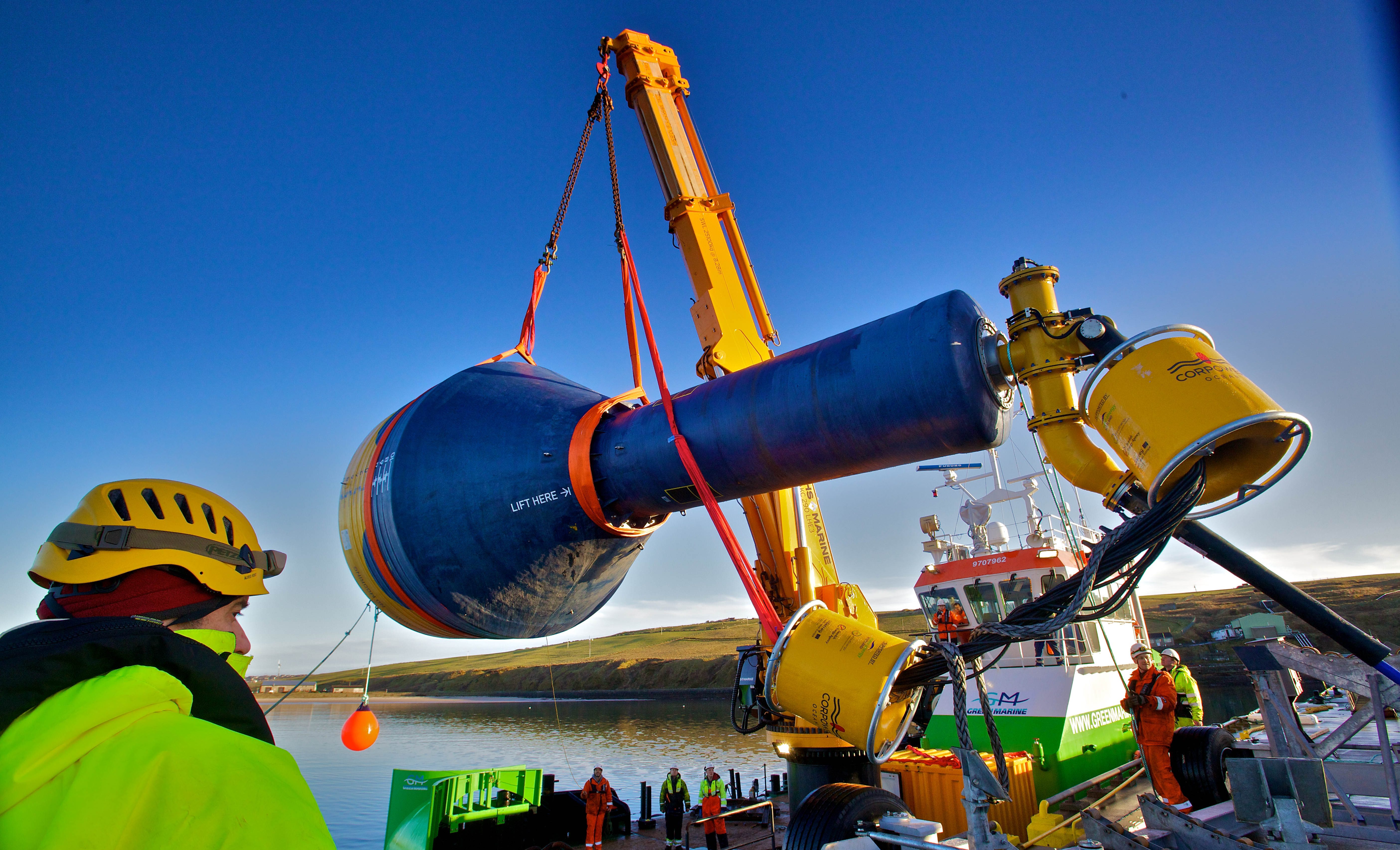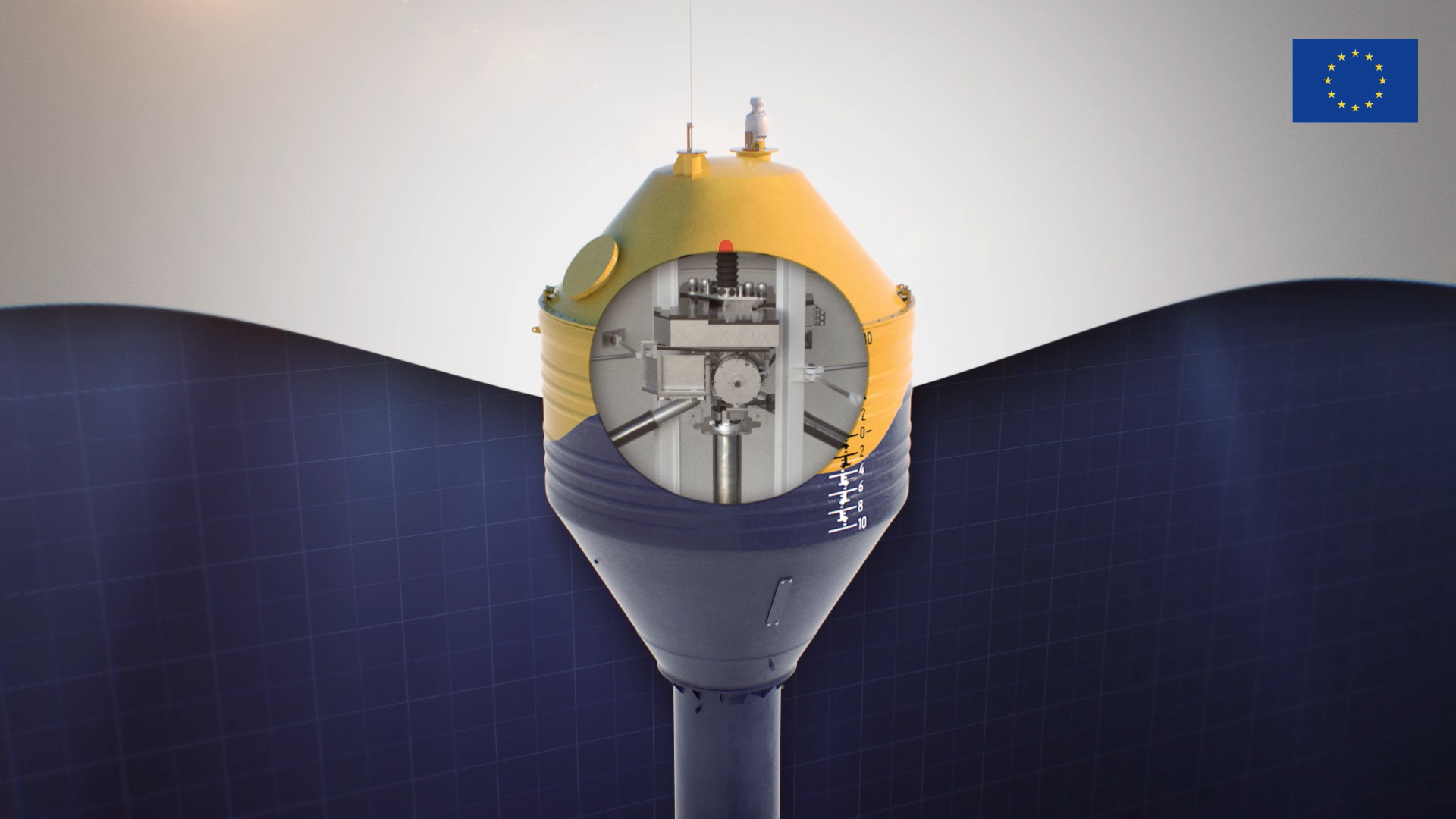WaveBoost project improves performance and reliability of wave energy

08.04.2020
The three-year Horizon 2020 funded WaveBoost project has drawn to a close with a step change improvement achieved to the reliability and performance of wave energy technology.
Led by CorPower Ocean, the WaveBoost consortium designed and developed an advanced Power Take Off (PTO) system allowing wave energy converters (WECs) to operate safer and more reliably in harsh ocean conditions while increasing annual electricity production by 27%.
The system incorporates a revolutionary pneumatic module that has 80% less components, thus reducing complexity and CAPEX while improving reliability, compared to previous designs. An energy redistribution system manages fluctuating power input from ocean waves to support grid integration and increase energy production.
On the performance side, new dynamic seals were design and tested resulting in 70% improvement in friction, while flow losses have been reduced by up to 90% compared to previous product.
The improvements enabled the Levelised Cost of Energy (LCOE) to drop by 18-29%, with operational expenditure expected to decrease by up to 30%.

Lifecycle analysis (LCA) undertaken on a theoretical 50 MW array deployed in Scotland indicated a carbon intensity already as low as 31.4 gCO2e/kWh based on the first prototype WEC generation design alone. This carbon intensity is comparable with other renewable technologies today and is over 10 times less than conventional gas turbines, securing the pathway to low carbon intensity WEC technology.
A summary of the achievements is available in the Waveboost project video and on www.waveboost.eu.
The learnings from the WaveBoost project will be carried forward as CorPower Ocean move towards the manufacturing, dry testing and deployment of their next full scale C4 WEC.
The WaveBoost project consortium comprised of sector leaders from Sweden, Portugal and the UK including CorPower Ocean (project lead), Arcos Hydraulik, RISE Research Institutes of Sweden, EDP Innovação, WavEC Offshore Renewables, The University of Edinburgh, and the European Marine Energy Centre (EMEC).
Matt Dickson, Waveboost Project Manager, and Technical Project Manager at CorPower Ocean said:
“CorPower have a rigorous product verification strategy that follows a structured five-stage process, established as best practice for ocean energy technology by International Energy Agency-OES, ETIP Ocean and Wave Energy Scotland. It involves step-wise validation of survivability, performance, reliability and economics starting with small scale prototypes in Stage 1, continued by sub-system testing and then fully integrated WEC in increasing scales up to array demonstration in Stage 5.
“The successful completion of the H2020 Waveboost project marks a key milestone in our journey and unlocks our progress from Stage 3 into Stage 4 of our program as we scale our WEC technology to full scale.”
Henry Jeffrey, University of Edinburgh Policy and Innovation Group said:
“Working with CorPower Ocean and a range of industrial partners on the WaveBoost project has allowed the University of Edinburgh to even further refine our techno-economic models of wave energy systems. A key output of the WaveBoost project was a preliminary lifecycle analysis for an array of CorPower Ocean wave energy converters which indicated a carbon intensity over 10 times less than conventional gas turbines.”
Tzer-Yuan Lim at DNVGL who carried out the certification of the Advanced PTO systems said:
“The Waveboost project helped DNV GL UK Ltd. extend our knowledge and experience in certifying wave energy equipment in accordance with EU Directives and specifically, the risks and potential failure modes when using composite materials. This has enabled us to provide greater insight on the design and fabrication of wave energy convertors using composite materials.”
Sofia Ganilha at EDP said:
“Innovation is in EDP’s DNA to foster new technologies that help us to diversify and increase the efficiency of our portfolio. We like to take risks by creating opportunities to maintain EDP in the leadership of renewable generation. We believe that the decarbonization of the energy sector will require synergies among all renewable energy sources and the sea is one of the puzzle pieces with a lot of energy density to offer.”
Pär Johannesson PhD, Senior Researcher at RISE Research Institutes of Sweden said:
“Working with Corpower and their supply chain on reliability in the Waveboost project has been very rewarding. The Corpower approach is very state-of the art in the industry by bringing integrated solutions in accelerated testing and reliability. Their approach on hybrid testing is rewarding on both component and organisational level that will have great impact on the overall LCOE.”
